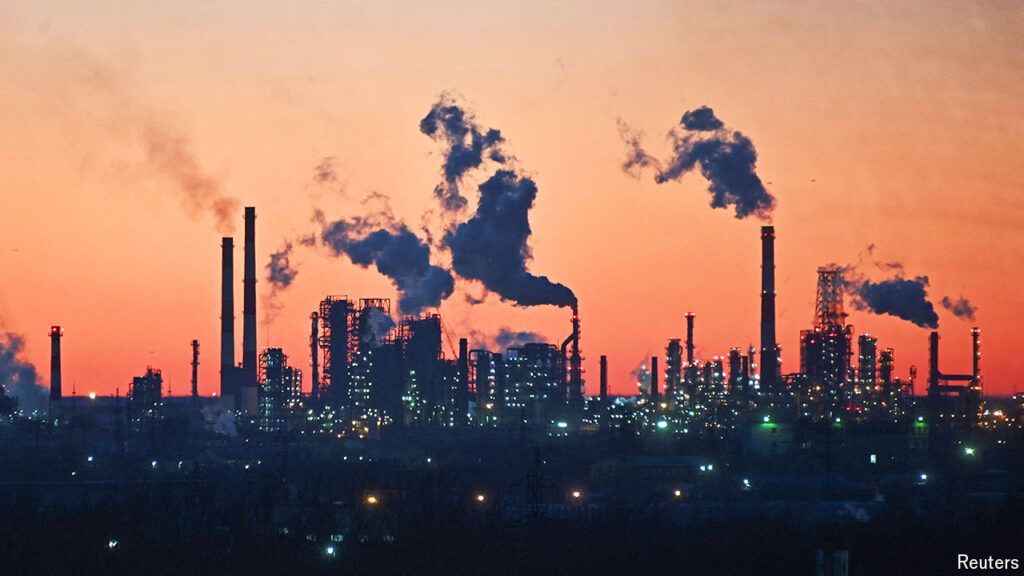Selling more oil at higher prices should be a boon for a petrostate, but for Russia, it signals a new and challenging phase in its conflict with Ukraine. Ukrainian drone strikes on refineries have severely impacted Russia’s ability to produce refined fuels, such as diesel and petrol. As a result, Russia has been forced to import petrol, a role reversal for the world’s third-largest oil producer. In order to offset their losses, energy firms have increased exports of unrefined oil, reaching a peak in March.
The most recent attack by Ukraine on April 2nd demonstrated an escalation in their tactics. The attackers managed to plant explosives on a refinery located 1,115km from the border, causing a fire that damaged a unit responsible for 3% of Russia’s refining capacity. While this particular attack did not result in lasting damage, previous strikes have been more successful. Overall, Ukraine’s ongoing barrage has taken out a significant portion of Russia’s refining capacity, amounting to a seventh of its total capacity according to data from S&P Global. Additionally, maintenance work and flooding in Orsk on April 8th further reduced refining capacity, leading to a spike in wholesale prices on the St Petersburg International Mercantile Exchange.
In response to these attacks, Russia is facing a challenging situation as it struggles to maintain its energy infrastructure and meet domestic demand for refined fuels. The attacks by Ukraine have disrupted the flow of oil and petrol, leading to shortages and higher prices in the market. The attacks on energy infrastructure in Ukraine also aim to undermine Russia’s economy and weaken its ability to fund the ongoing conflict.
Ukraine, which has itself been targeted by similar attacks on its energy infrastructure, sees these assaults as a way to disrupt Russia’s war efforts and reduce support for the conflict. By targeting key refineries and disrupting the flow of energy resources, Ukraine hopes to weaken Russia’s position and force them to reconsider their military actions. The ongoing attacks highlight the complex and multifaceted nature of the conflict between the two countries, with energy resources playing a central role in the strategic calculations of both sides.
As the conflict between Russia and Ukraine continues to escalate, the importance of energy resources and infrastructure in shaping the outcome of the war cannot be understated. The attacks on refineries and energy facilities have significant implications for both countries, impacting their ability to produce and distribute fuels essential for their economies. The disruption of energy resources by both sides highlights the interconnected nature of the conflict and the strategic importance of energy in shaping the outcome of the war.



